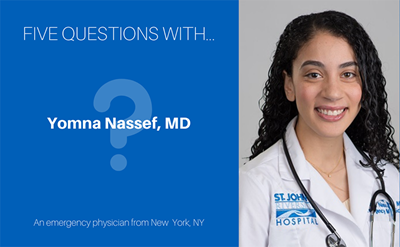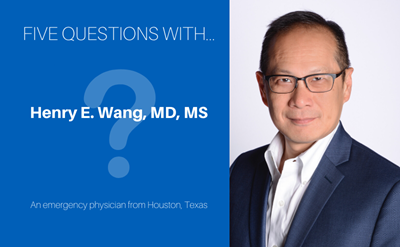The medical student pulled up a chair and began to discuss her patient with me. She rattled off his stats: 94-years-old, surprisingly healthy, looks 80…couple bumps and bruises, better-safe-than-sorry kind of stuff. I stopped her.
“Did you ask him about the war?”
She looked confused, as if trying to recall if this was somehow germane to the patient’s chief complaint as to why he was in the emergency room at the time.
“How old are you?” I asked.
“Twenty-four,” she replied.
“You have maybe two years left before you will never be able to ask that question again. This is the greatest generation that ever lived. They died on battlefields all over the world and saved the millions from fascism. They all want to tell their stories before they die. So let’s check him out and then ask him about the war.”
And for the next 15 minutes, we sat in wonder and rapt attention as he told us with great pride that he had been a bomber pilot, fighting over Italy, the Balkans and later Berlin, where he was shot down. He parachuted to safety and was taken prisoner, put in a Stalag POW camp, later liberated by Gen. George Patton, as he described him riding into camp on a tank, shiny helmet with a pistol strapped on his side. The student sat silent but glowed in wonderment at what she was experiencing. As we left the room, she turned to me.
“Dr. Profeta, that was amazing. Thank you so much.”
I smiled in agreement.
“He’s fine, let him go home,” and as I typed up his discharge paperwork, my fingers stopped for a bit and hovered above the keys as my mind flashed back to another time I asked that question.
“So were you in the war?” I asked the 90-year-old man who looked 75.
“Of course I was, we all were,” he replied. His well-pressed daughter sat in the corner smiling with pride behind her bronze-rimmed glasses. “I was with Patton in Europe in the Battle of the Bulge. I was a gunner in a half-track; we provided support for the tanks. I manned this fifty-caliber gun in the turret. You see the Nazi planes would start strafing us and, I’d be there in my turret, BANG BANG BANG BANG! I had this foot operated ‘gun thing’ too you would step on and WHOOF WHOOF it would shoot these big shells out the side.”
I listened attentively as he talked about the fighting and how his brother was killed in Europe and how he wished it had been him since his brother had two small children. He held up his weathered hand to show me how tall the kids had been when he was killed. I hung on to the bed rail in silence. He told me about his nephews who were also killed, how his cousin was injured in the navy and how he had married the nurse that cared for him. He was animated in his demeanor, as he discussed every detail. The words flowed in a continuous stream of reflection like I have never heard. He held his head high and beamed with a mixture of pride and gratitude that some young punk like me would ask about his war service.
Then somehow the talk turned to the holocaust.
“Dad, you helped liberate a camp didn’t you?” His daughter leaned forward in her chair. I thought I saw a faint quiver in his lip.
“Yes, yes, we pulled into Austria and liberated Mauthhausen.” His speech became fractured not like earlier, “There were these ovens and these burnt bodies…I saw this guy in striped pants, there was this pit, and a bulldozer, it had a huge blade, and well they went all the way to the top and out the sides, and the ovens, and I saw…and the…they…and they were all nude and you could not tell if they were women or men…and…and” his faced turned sallow, and tears filled the wrinkles below his eyes and hovered for a second before falling. The words stuck thick in his mouth. His daughter sat staring at me in silent disbelief, and mouthed the words: “I had no idea; I have never heard any of this before. He never, ever told me this.”
I put my arm around him and held him tight. “It’s OK, I’m sorry I made you go there.”
“No, no,” he patted my arm with a hand that once fired a fifty-caliber machine gun. “I’ll tell you this, though, I am not spending the night in this hospital. I feel great; I walk three blocks every day. Oh did I tell you about my cousin who got injured in the navy? He married the nurse that took care of him.”
“No you didn’t.” I smiled at the daughter. “Tell me about it.”
Dr. Louis Profeta is an emergency physician at St. Vincent Hospital in Indianapolis, Indiana.
 American College of Emergency Physicians
American College of Emergency Physicians







